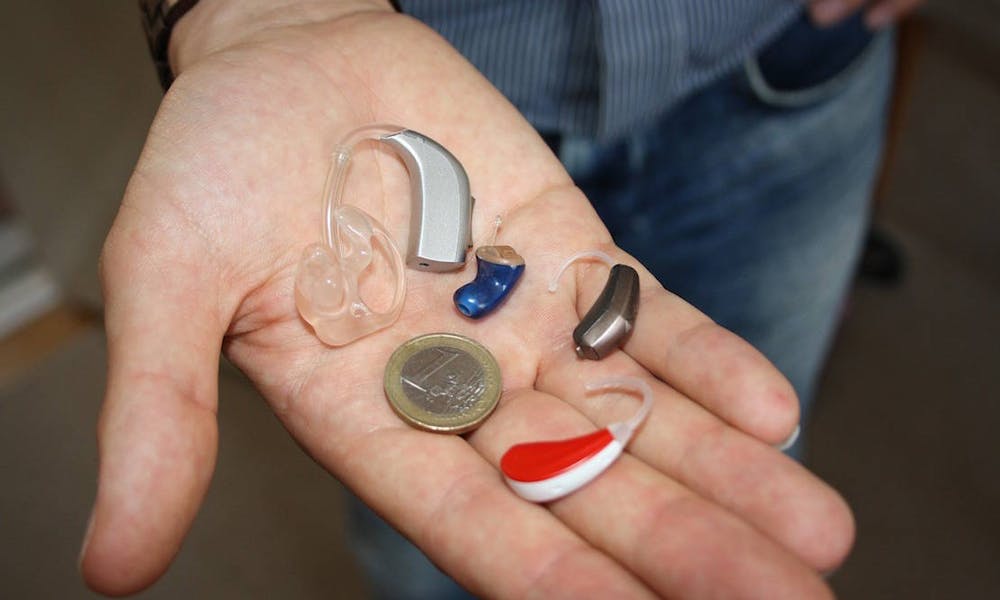
Subscríbete para recibir un plan de comidas para la diabetes de 7 dias, gratis
Diabetes is a disease in which the body’s production or response to insulin is significantly impaired. This impairment, results in high levels of blood glucose which can lead to serious health problems like heart disease or stroke and can also cause damage to your organs or nerves. Over the last decade, research has linked diabetes to another potential health problem or complication – hearing loss.
The link between Diabetes and Hearing Loss
Since the 1960’s, scientists and medical professionals have been debating the link between diabetes and hearing loss. Unfortunately, it wasn’t until the 21st century that research could show a direct link between the two. According to a 2008 study[^1], published by the National Institutes of Health (NIH) in the June edition of the Annals of Internal Medicine, people with diabetes were twice as likely to suffer from hearing loss compared to adults who did not have the disease. This study was done on adults from the ages of 20 to 69, with most of the diagnosed diabetics suffering from Type 2 diabetes.
In 2013, another study [^2]reinforced this direct link between diabetes and hearing loss. In fact, this study confirmed the concluded 2008 research that diabetics were twice more likely to suffer from hearing loss than those who are non-diabetic. It also stated that this higher prevalence of hearing loss “was consistent regardless of age.”
Unfortunately, hearing loss isn’t just exclusive to those with diabetes, it has also been linked to those with prediabetes (higher than normal blood sugar level) as well. According to the American Diabetes Association (ADA)[^3], of the 86 million adults who have been diagnosed with prediabetes, the rate of hearing loss is “30 percent higher than in those with normal blood glucose.”
How does diabetes cause hearing loss?
Diabetes impairs or prevents the transportation of glucose or insulin through the blood vessels and into the cells that need energy. Without enough insulin, the body has a difficult time transporting the glucose from the blood vessels to the cells.
According to Diabetes.co.uk[^4], over long periods of time, high levels of blood glucose can lead to serious damaging of blood vessels like arteries, capillaries and veins.
Like the eyes and kidneys, the inner ear has numerous small blood vessels that can become damaged over time due to a prolonged accumulation of high blood glucose levels. This damage to the blood vessels within the inner ear is one potential cause for diabetic related hearing loss.
Another complication of diabetes is diabetic neuropathy, a family of nerve disorders that result in some form of nerve damage. According to the NIDDK[^5], roughly 60 to 70 percent of diabetics suffer from neuropathy. Scientists and researchers are starting to believe that this neuropathy can lead to damage of the auditory nerves within the ear; thus causing hearing loss.
More research is needed to provide a definitive cause for hearing loss in diabetics. As of now, damage to inn ear blood vessels and auditory nerve damage are the leading theories on hearing loss in diabetics.
Symptoms of Hearing Loss
Symptoms of hearing loss in diabetics are more clearly understood than the causes. If you are suffering from any of the following, and are diabetic, then you should consult with your doctor for a proper diagnosis:
- If turning up the TV, radio or phone to hear the sounds or voices is so loud that other people nearby start complaining.
- Constantly having to ask others to repeat what they say.
- Thinking that others are mumbling, whispering or talking softly when they really aren’t.
- Have hearing difficulties when in noisy or loud places.
Keep in mind, just because you are having hearing difficulties doesn’t mean you are experiencing a diabetic related hearing loss. There could be numerous other causes for your hearing impairment like a buildup of fluid, an ear infection, allergies, a perforated eardrum and earwax. It’s important to see your doctor for further evaluation and diagnosis.
Diagnosing Hearing Loss
If you suspect hearing impairment, a doctor will perform tests to determine if you are one of the near 50 million people who suffer from some form of hearing loss. Your health history will be taken into immediate consideration especially if you have diabetes. A physical examination of your ears will be done to see if there’s any infection, fluid buildup or an obvious blockage. Additional hearing tests like a tuning fork or an audiometer can be done to see if there’s any damage to the middle or inner ear. Further evaluation may be necessary with an ear specialist.
Treatments for Hearing Loss
Depending on the cause of your hearing loss, there are several different methods of treatment: antibiotics, removal of any blockage or earwax, hearing aids, surgery or implants.
Some forms of hearing loss may even be temporary and individuals are able to recover from them. Unfortunately, diabetics have a lower rate of recovery from temporary hearing loss than non-diabetics, according to a study published in 2015[^6].
Preventing Hearing Loss in Diabetics
Diabetics are recommended to have their hearing checked every year. Early detection of hearing impairments may be the difference between recovery and hearing loss. It’s also recommended that diabetics continue to closely monitor their blood sugar levels. As mentioned, high levels of blood glucose can lead to blood vessel damage within the inner ear and other parts of the body.
Diabetics are also encouraged to manage their weight, reduce high blood pressure and closely follow any prescribed medication, diet or exercise program.
Final Words
Although the cause of hearing loss in diabetics still requires more research, it’s a potential complication that can no longer go unnoticed. Diabetics need to closely monitor their hearing as they do numerous other important health factors. Additionally, diabetes requires a more dedicated approach to living a healthier lifestyle. This dedication to a healthier you can go a long way in preventing potential future complications like hearing loss.
- Hearing Loss Is Common In People With Diabetes. National Institutes of Health (NIH). N.p., 2017. Web. 31 Mar. 2017.
- Horikawa C, et al. "Diabetes And Risk Of Hearing Impairment In Adults: A Meta-Analysis. - Pubmed - NCBI". Ncbi.nlm.nih.gov. N.p., 2017. Web. 31 Mar. 2017.
- Diabetes And Hearing Loss". American Diabetes Association. N.p., 2017. Web. 31 Mar. 2017. Blood Vessels". Diabetes.co.uk. N.p., 2017. Web. 31 Mar. 2017.
- Information, Health et al. "Nerve Damage (Diabetic Neuropathies) | NIDDK".National Institute of Diabetes and Digestive and Kidney Diseases. N.p., 2017. Web. 31 Mar. 2017.
- Dass Arjun, Kapoor Ravi. "Sudden Sensorineural Hearing Loss; Prognostic Factors". PubMed Central (PMC). N.p., 2017. Web. 31 Mar. 2017.
![[object Object]](https://images.prismic.io/dediabetes/e0b95e20-c0d4-4b4a-b834-ea76b5f34da8_author_std.jpg?ixlib=gatsbyFP&auto=compress%2Cformat&fit=max&rect=5%2C0%2C59%2C59&w=120&h=120)


